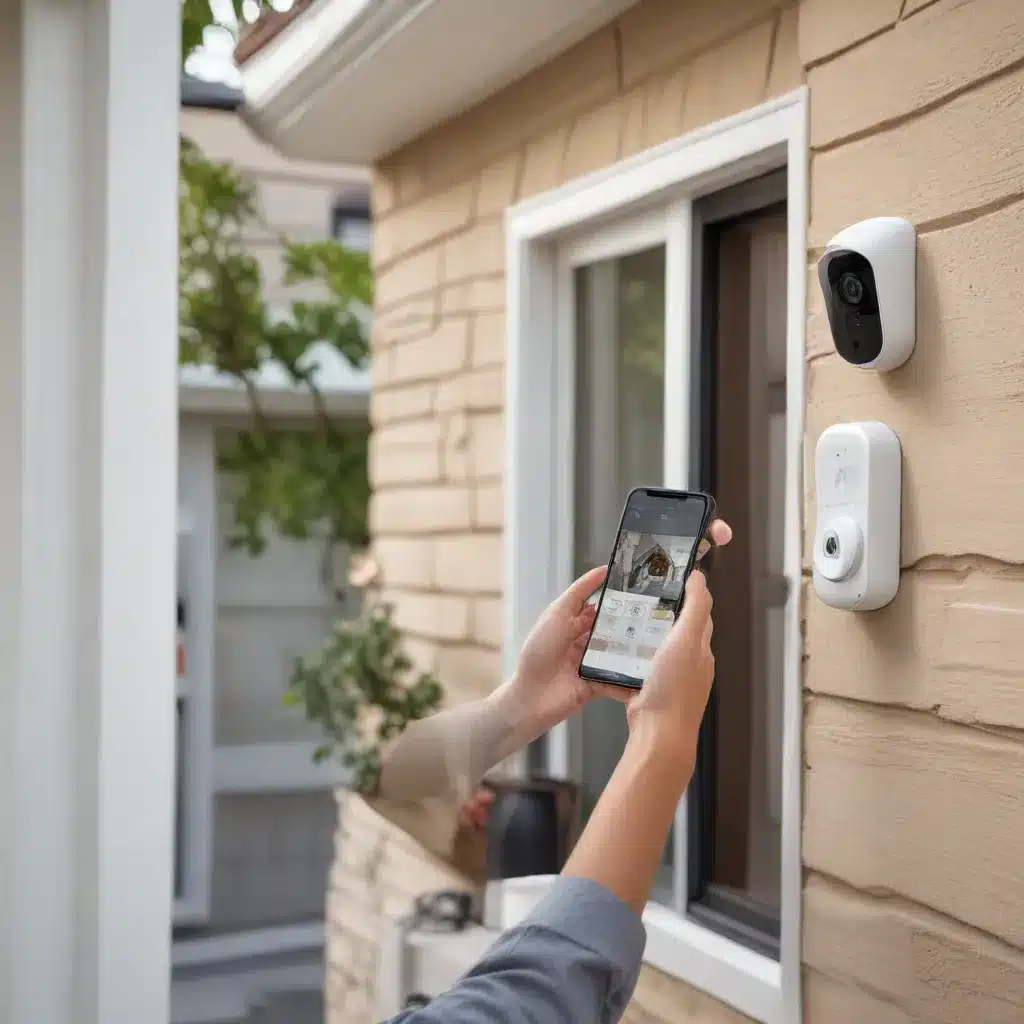
Balancing Security, Compliance, and Energy Efficiency in UK Homes and Businesses
In the ever-evolving landscape of construction and home improvement, UK homeowners and businesses face a multitude of considerations when it comes to safeguarding their properties. From adhering to strict building regulations to adopting sustainable practices, the challenges can seem daunting. However, by understanding the nuances of the UK’s regulatory framework and embracing innovative technologies, you can create secure, cost-effective, and energy-efficient spaces that cater to your specific needs.
Unlocking the Secrets of UK Building Regulations
The UK’s building regulations are designed to ensure the safety, accessibility, and energy efficiency of all new constructions, renovations, and conversions. As a homeowner or business owner, it is crucial to familiarize yourself with these guidelines to avoid costly mistakes and potential legal repercussions.
One of the fundamental pillars of UK building regulations is the Building Regulations 2010, which outline a comprehensive set of standards covering various aspects of construction, including structural integrity, fire safety, and energy performance. Adhering to these regulations not only safeguards your property but also protects the wellbeing of its occupants.
For example, the Approved Document B within the Building Regulations 2010 addresses fire safety requirements, ensuring that your property is equipped with the necessary fire detection and suppression systems. Similarly, Approved Document L focuses on the conservation of fuel and power, guiding you towards energy-efficient building practices and the incorporation of renewable energy sources.
Navigating the intricacies of these regulations can be daunting, but by engaging with experienced architects, engineers, and building control professionals, you can ensure your project is in full compliance. These experts can provide invaluable guidance on the specific requirements for your property, whether it’s a new build, extension, or renovation.
Embracing Sustainable Building Practices
As the global focus on environmental sustainability intensifies, the construction industry has undergone a significant transformation. In the UK, there is a growing emphasis on incorporating eco-friendly building materials, energy-efficient technologies, and water conservation strategies into both residential and commercial projects.
One of the key drivers of sustainable building practices is the Energy Performance of Buildings Regulations 2012, which mandates the use of energy performance certificates (EPCs) for all properties. These certificates provide a detailed assessment of a building’s energy efficiency, allowing homebuyers and tenants to make informed decisions about the long-term running costs and environmental impact of a property.
When it comes to selecting building materials, UK construction professionals are increasingly turning to sustainable alternatives that offer a reduced carbon footprint, improved insulation, and enhanced durability. For instance, timber-frame construction has gained popularity due to its renewable nature, superior thermal performance, and lower embodied energy compared to traditional brick and mortar structures.
Furthermore, the integration of renewable energy technologies, such as solar photovoltaic (PV) panels, heat pumps, and energy-efficient lighting, can significantly reduce a building’s reliance on fossil fuels and lower its overall carbon emissions. These innovations not only contribute to environmental sustainability but also offer long-term cost savings for homeowners and businesses.
Balancing Security and Smart Home Technologies
In an era of heightened security concerns, UK homeowners and businesses are seeking robust solutions to protect their properties, assets, and the wellbeing of their occupants. The rise of smart home and building automation technologies has revolutionized the way we approach security, offering a seamless integration of cutting-edge systems that enhance safety while prioritizing convenience and energy efficiency.
Smart security systems, which incorporate features like motion sensors, video surveillance, and remote access, have become increasingly popular in the UK market. These systems not only deter burglars and intruders but also provide real-time monitoring and notifications, allowing homeowners and business owners to respond promptly to potential threats.
One of the key advantages of smart security systems is their ability to integrate with other smart home technologies, creating a centralized control hub for managing various aspects of a property. For example, the integration of smart lighting, climate control, and energy management systems can optimize energy usage, reducing both environmental impact and utility costs.
When selecting a smart security system, it is crucial to consider the compatibility of the equipment with UK regulatory standards, such as those outlined in the Security Industry Authority (SIA) Approved Contractor Scheme. This ensures that the installed systems meet the necessary requirements for licensing, training, and operational procedures, providing an added layer of assurance for the property owner.
Cost Considerations and Financing Options
Investing in building compliance, sustainable practices, and advanced security systems can be a significant financial undertaking for UK homeowners and businesses. However, there are various cost-effective strategies and financing options available to make these improvements more accessible.
One innovative approach is the utilization of government incentive programs that offer financial support for energy-efficient upgrades and the installation of renewable energy technologies. Schemes like the Green Homes Grant and the Renewable Heat Incentive can help offset the upfront costs, making sustainable building practices more feasible for homeowners and small businesses.
Furthermore, many local authorities and private financial institutions in the UK provide flexible financing solutions, such as low-interest loans and payment plans, to facilitate the adoption of these essential improvements. By exploring these options, property owners can spread the financial burden over time, ensuring that their investments in safety, energy efficiency, and compliance align with their budget.
Conclusion
In the ever-evolving landscape of UK construction and home improvement, navigating the intricate web of building regulations, sustainable practices, and smart security technologies is crucial for safeguarding your property and ensuring long-term value. By embracing a holistic approach that prioritizes compliance, energy efficiency, and innovative security solutions, you can create spaces that not only protect what matters most but also contribute to a more sustainable future.
To learn more about the latest advancements in building practices and regulatory compliance, we encourage you to explore the resources available on our website, abc-home.co.uk. Our team of experts is dedicated to providing comprehensive guidance and practical solutions to help you transform your property into a secure, energy-efficient, and future-proof haven.
















